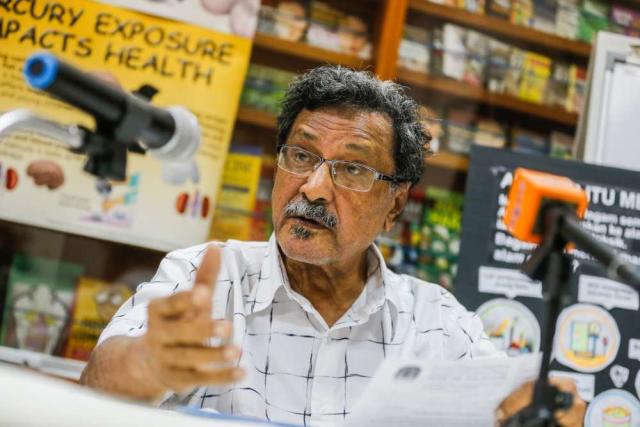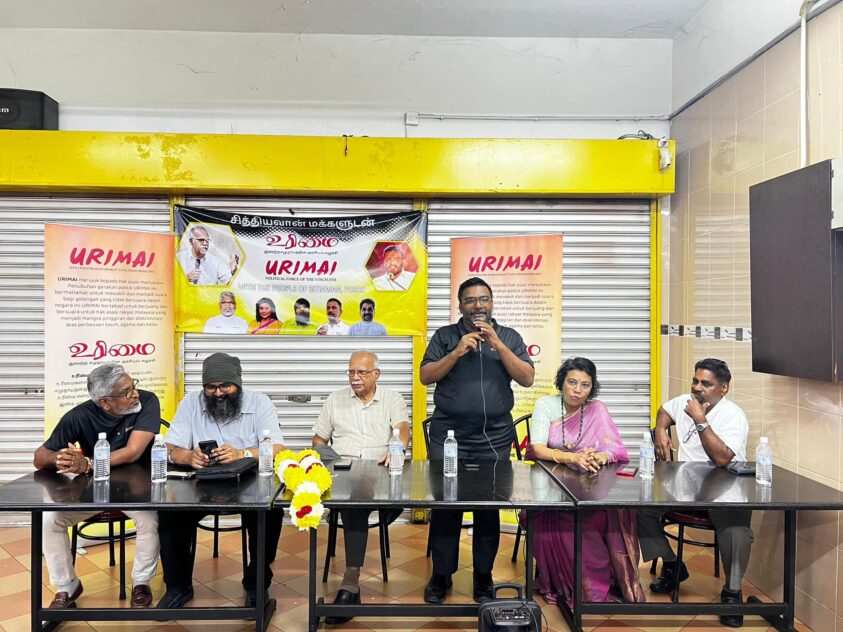PERMATANG Pauh MP Nurul Izzah Anwar has revealed that children in the B40 group were currently experiencing extreme levels of food and nutritional poverty and also risk becoming a ‘lost generation’.
Students in this group have fallen significantly behind in their studies due to the lack of proper access and use of online learning, she added.
From April to May 2021, a survey involving 332 households in Permatang Pauh revealed that women-headed households and their children are significantly poorer as compared to their male-headed counterparts.
The survey was conducted under the guidance of a multi-dimensional poverty expert and former Universiti Malaya economics professor, Prof Fatimah Kari.
It was done to accurately identify the deprivations faced by families on the ground so more targeted and effective aid could be disbursed accordingly.
“Malaysia is currently experiencing the tragedy of severe child poverty post-COVID-19,” said Nurul Izzah.
“This has tangible ripple effects on their education, social mobility and future prospects so much so that they fare worse than their parents.
“This is the heartbreaking reality experienced now by our ‘Keluarga Malaysia’, our Malaysian families on the ground.”
According to Nurul Izzah, the total number of social and subsidy programmes launched increased from only 95 in 2012 to 137 in 2020.
However, the total expenditure for these programmes fell from 3.46% of the gross domestic product (GDP) (RM45.5 bil) in 2012 to only 1.81% of the GDP (RM25.5 bil) in 2020.
To illustrate this point further, Aid for Needy Children (Bantuan Kanak-Kanak) under the Ministry of Women, Family and Community Development was only delivered to 62,000 families in 2020, which is less than 1% of all Malaysian households.
As for Aid for Older Persons (Bantuan Warga Emas), also under the Ministry of Women, only RM600 mil was delivered to less than four percent of Malaysians aged 60 and above.
“Why are these figures so low? Because narrow conditions for eligibility are used to gate-keep the distribution of aid.
“I am aware that Malaysia’s Poverty Line Income (PLI) was in fact increased from RM980 to RM2,208 in 2019.
“However, aid disbursement in 2020 still utilised the older PLI. It is absolutely certain that many individuals in need have been left out as they are categorised as ineligible.
“Who are we really protecting here? Our existing taxation policies are mostly regressive [and] therefore the Government needs to introduce new progressive taxation to finance our nation’s social programmes,” she remarked.
Bearing the brunt of structural inequalities and injustices
Even before COVID-19, Nurul Izzah further pointed out that women have borne the brunt of structural inequalities and injustices that caused them to be more multi-dimensionally deprived.
COVID-19 exacerbated these existing inequalities, making women more vulnerable than ever in the aspects of finance, health (the lack of diagnostic tools and treatment for female-related diseases such as cervical cancer or the prevalence of period poverty), and social mobility (the lack of re-skilling opportunities or the marginalisation faced in the workforce).
Turning to housing policies, she said these need to include the needs of those women who are the heads of their respective households.
“To further safeguard generations under the care of such households, I urge the Government to emulate the Shariah Court Family Support Division’s initiative that provides divorced mothers an advance on their alimony in the event their husband fails to uphold this responsibility, leaving their families high and dry.
“The 12th Malaysian Plan (12MP) must specifically provide an ecosystem that focuses on the needs of gender, ‘from cradle to grave; from victim to abuser’,” she said.
According to Nurul Izzah, a holistic approach to protecting women includes supporting efforts to reform the prison department through the formation of a Sentencing Council.
“The Government must also urgently form a Prison Reforms Working Committee to enact reforms in probation, and to transfer prison health functions to the Ministry of Health,” she added.
Meanwhile, a Khazanah Research Institute report outlined several laws in Malaysia that were drafted to protect its citizens.
Unfortunately, Nurul Izzah pointed out that none of these laws specifically protect children and families.
Families and children severely lack support, and this includes the 4,422 children who have lost their parents or guardians to COVID-19, 154 of whom were completely orphaned after both parents passed away from the disease.
She further pointed to study findings which concluded that it was necessary to provide an additional RM256 per capita to meet the nutritional needs of B40 children in her constituency.
“Our children also need reliable internet access as soon as possible to allow them to continue their online learning.
“A total 23,910 students in Permatang Pauh will be forced to wait for the 12MP’s fibre optic plan.
“It is a costly investment and requires a long wait, which were concerns highlighted in my letter to the minister,” she remarked. – Oct 6, 2021










